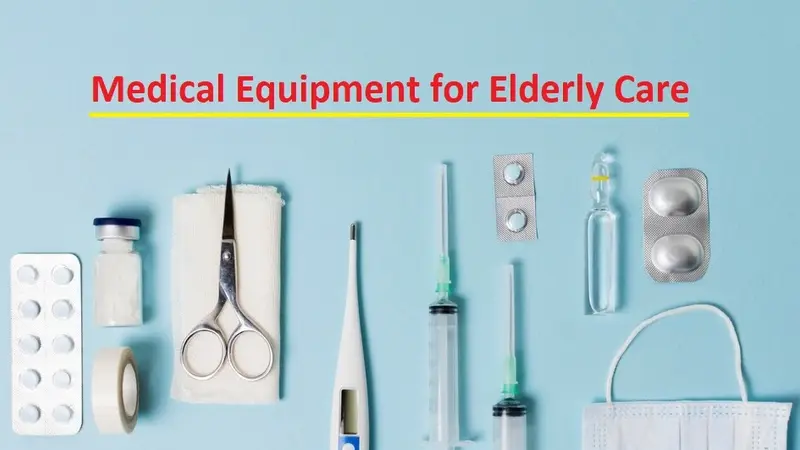Caring for an elderly loved one is a delicate endeavor, one that often requires specialized medical equipment to ensure comfort, mobility, and safety. However, navigating the many options available can be confusing and costly.
In this article, we will discuss the benefits of renting medical equipment for elderly care and what you need to know before making this critical decision.
The Importance of Affordable Medical Equipment
Ensuring that our seniors have access to the appropriate medical equipment is not just a convenience—it’s a necessity for maintaining their quality of life. From walking aids and wheelchairs to home care beds and portable oxygen tanks, the proper devices can make all the difference.
However, the cost of purchasing such equipment can be prohibitive for many families, and the sheer variety makes selecting the right tool for the job daunting.
Common Challenges Faced by Caregivers
Caregivers often juggle multiple responsibilities, and acquiring or maintaining medical equipment is frequently stressful. They may need help with insurance coverage, have difficulty installing or operating complex devices, or help finding timely replacements or repairs. These obstacles can compound the already considerable challenges of elder care, leaving caregivers feeling overwhelmed and underserved.
The Advantages of Renting Over Buying
Regarding medical equipment, the choice between buying and renting is essential. Renting offers flexibility in terms of adapting to changing healthcare needs and significant cost savings. For caregivers who may be unsure of their elderly loved one’s long-term equipment needs, avoiding the commitment of a purchase can be a wise financial decision.
i) Cost Savings
Medical equipment can be expensive, and an elderly person’s needs can change rapidly. By choosing to rent, caregivers can save money that might otherwise be wasted on underused or quickly outgrown devices.
ii) Convenience
Rental services often include delivery, setup, and maintenance. This can significantly reduce the caregiver’s burden, as they are free from the logistical complexities of purchasing, transporting, and managing the equipment.
iii) Trial and Flexibility
Renting allows caregivers and their loved ones to try out different equipment models, often within the comfort of their own homes. Should the equipment not meet their needs, a replacement can be arranged swiftly without needing another purchase.
The Process of Renting Medical Equipment
To simplify the rental process for caregivers, it’s important to break it down into actionable steps. From researching and selecting the right equipment for your loved one to returning it at the end of its service, each phase comes with its own set of considerations and best practices.
i) Research and Selection
Begin your process by understanding your loved one’s medical needs and consulting with their healthcare provider. This will help you determine the type of equipment required. Once you have a list of potential items, research reputable rental providers and obtain quotes.
ii) Documentation and Ordering
After selecting a provider, carefully review the rental agreement to ensure you understand the costs, terms, and any potential surcharges or fees. Have all necessary prescriptions and medical documentation ready to provide to the rental company.
iii) Installation and Use
Upon delivery, the rental company should install and demonstrate the equipment, ensuring you and your loved one know how to use it safely and effectively. Be sure to ask for written instructions and contact information for technical support.
iv) Maintaining and Returning
Regular care and maintenance of the equipment are essential to keeping it in good working condition. When the rental period ends, arrange for pickup or return as instructed. Clean the equipment according to the provider’s guidelines and document its condition before it leaves your home.
Finding Reputable Rental Providers
Not all rental companies are created equal, and when it comes to something as critical as medical equipment, you want to ensure you’re working with a reliable and reputable provider. Look for businesses that are accredited, have positive customer testimonials, and offer quality, well-maintained equipment. For more information on home care package providers head over to Let’s Get Care.
i) Online vs. Local Providers
Online rental services can provide a wide range of options and competitive prices. However, local providers may offer more personalized service and quicker response times in emergencies or technical issues.
ii) Read Reviews and Get Recommendations
Contact your network for recommendations or search online for reviews and ratings of different rental companies. Personal experiences and consumer feedback are invaluable resources.
Maintaining and Returning Equipment
The final stages of your rental experience can significantly influence your overall satisfaction and the provider’s reputation. Proper maintenance and timely returns reflect accountability and can impact your ability to rent from the same provider in the future.
i) Establish a Maintenance Routine
Set reminders for regular equipment checks and necessary maintenance tasks. Keep logbooks or notes to track service schedules so that you can address any issues promptly.
ii) Clean and Prepare for Return
Carefully clean the equipment before returning it as directed by the rental company. This demonstrates respect for the provider’s property and ensures future users’ health and safety.
iii) Communicate with the Provider
Notify the rental company of any damage or issues that may have occurred during the rental period. Open communication can help resolve issues smoothly and prevent unexpected charges.
Conclusion
Renting medical equipment for elderly care can be a game-changer for caregivers, providing necessary tools without the long-term purchase commitment. By understanding the process, seeking reputable providers, and maintaining clear communication, caregivers can ensure a positive experience that supports the well-being of their elderly loved ones.
